History
History at Mobberley CE Primary School
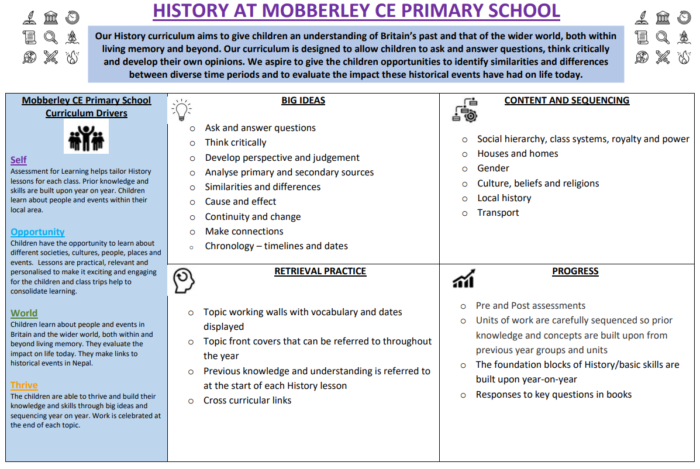
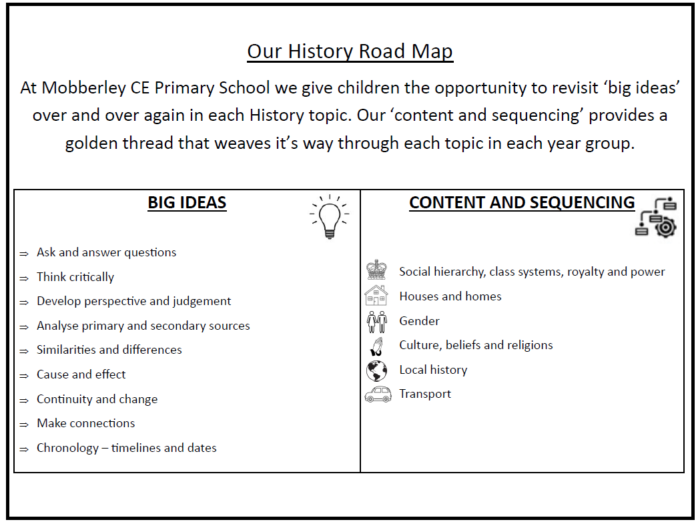
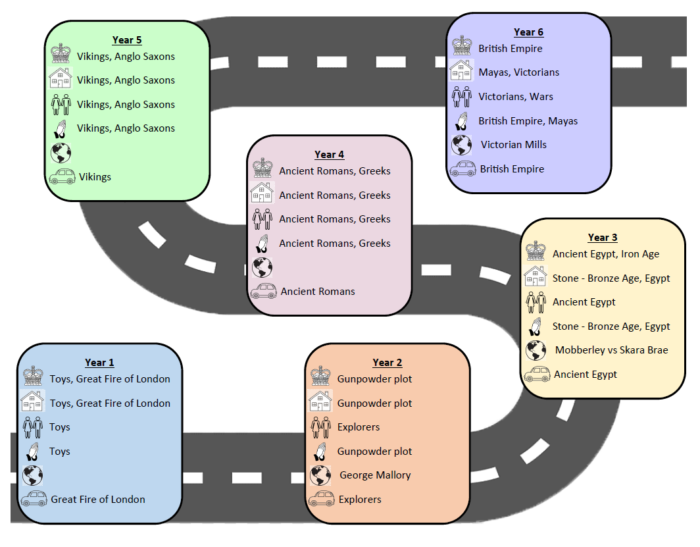
Intent
Aims
Our History curriculum aims to give children an understanding of Britain’s past and that of the wider world, both within living memory and beyond. Our curriculum is designed to allow children to ask and answer questions, think critically and develop their own opinions. We aspire to give the children opportunities to identify similarities and differences between diverse time periods and to evaluate the impact these historical events have had on life today.
Objectives
Through high quality teaching, children will build their knowledge and skills year on year, focusing on the following Historical concepts:
- Ask and answer questions
- Think critically
- Develop perspective and judgement
- Analyse primary and secondary sources
- Similarities and differences
- Cause and effect
- Continuity and change
- Make connections
- Chronology – timelines and dates
The following content will be revisited every year to note similarities and differences to make connections:
- Social hierarchy, class systems, royalty and power
- Houses and homes
- Gender
- Culture, beliefs and religions
- Local history
- Transport
Implementation
Our History curriculum is taught in blocks throughout the year so that children can achieve depth in their learning. Children receive one discrete afternoon of History per week, building on from the previous week’s learning. Key skills and knowledge have been identified for each year group to ensure progression throughout the school. At the beginning of each History topic, children complete a pre-assessment task which informs the programme of study and ensures that lessons are relevant and take account of children’s different starting points. Lessons are practical, relevant and personalised to make it exciting and engaging for the children. They are given opportunities to develop their critical thinking skills through open-ended questions and problem solving. All learning styles are catered for as teachers ensure they plan auditory, visual and kinaesthetic activities. Children develop their independence and confidence through individual activities and their co-operative skills during pair and group work. Consideration is given to how greater depth will be taught, learnt and demonstrated within each lesson, as well as how learners will be supported in line with the school’s commitment to inclusion.
Impact
As children progress throughout the school, they develop a deep knowledge, understanding and appreciation of the history of their local area. Outcomes in History books evidence a broad and balanced History curriculum and demonstrate children’s acquisition of identified key knowledge. Pre and Post-Assessments allow the children to demonstrate their knowledge and understanding alongside ‘Express’ lessons, which let children answer open-ended questions that were posed at the beginning of the unit of work. Historical understanding, as well as the children’s spiritual, moral, social and cultural development is further supported by our links with an international partner school.
SMSC
Through History teaching, our children develop knowledge and skills that are transferable to other curriculum areas and are used to promote their spiritual, moral, social and cultural development.
The spiritual development of pupils is shown by their study of cause and consequence and their exploration of how and why events in the past happened. History allows the children to see the similarities between people now and in the past. Artefacts are used to give pupils a sense of the past and aid pupils in understanding the people who produced and used these objects. Pupils are encouraged to explore the role played by important individuals in the shaping of the world we live in. Pupils also reflect upon different interpretations of the past and how these interpretations have been arrived at.
The moral development of pupils is shown by children considering and commenting on moral questions and dilemmas. Children will be encouraged to empathise with decisions which people in the past made and the reasoning behind these decisions. Notions of right and wrong are explored in connection with events from the past.
The social development of pupils is shown by the study of the similarities and contrasts between past and present societies. They will examine how other cultures have had a major impact on the development of ’British’ culture. Pupils will also be encouraged to build up their own social development through collaborative and team working activities. The study of social issues is a common theme in History lessons.
The cultural development of pupils is shown by the study of people from different cultural backgrounds. They will examine how other cultures have had a major impact on the development of ’British’ culture. Children develop a better understanding of our multicultural society through studying links between local, British, European and world history.
Please click below to view our knowledge progression.
Please click below to view our skills progression.
Please click below to view our History policy.
Pupil Voice
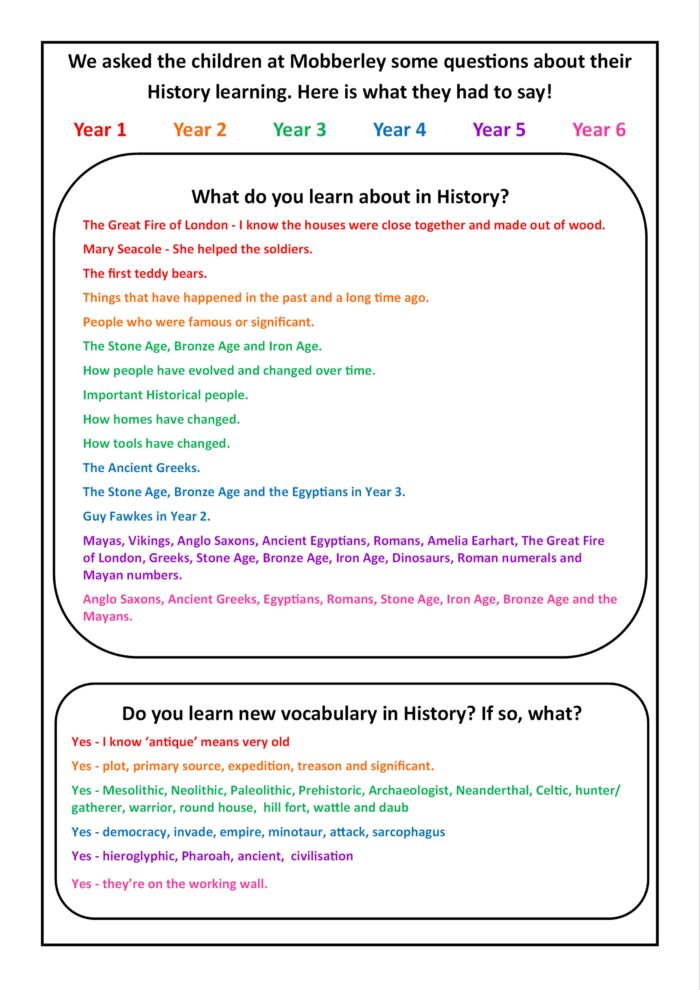
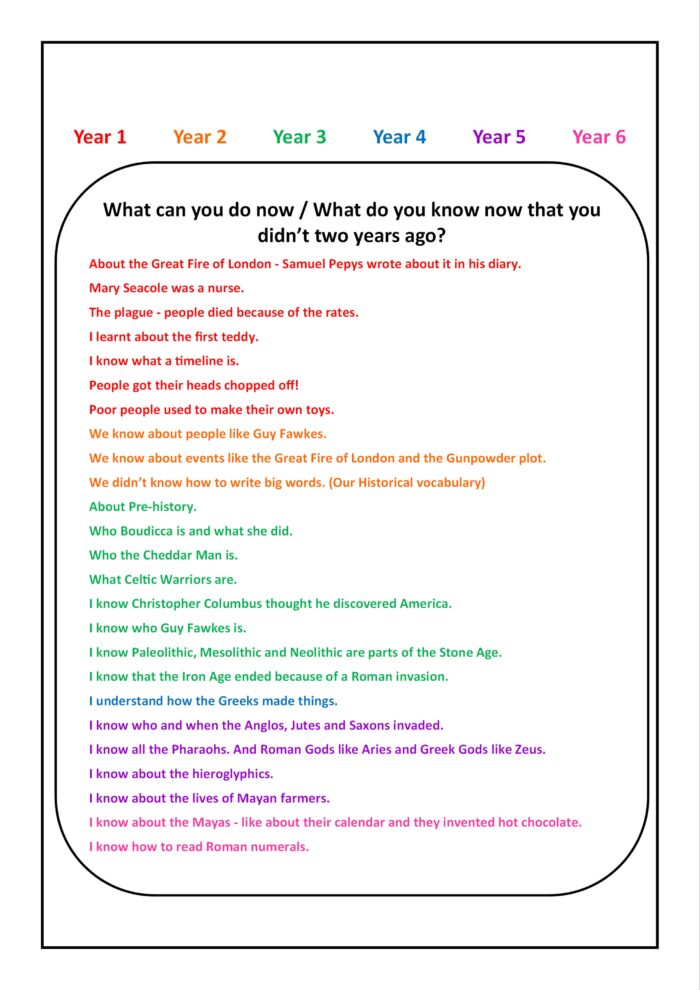
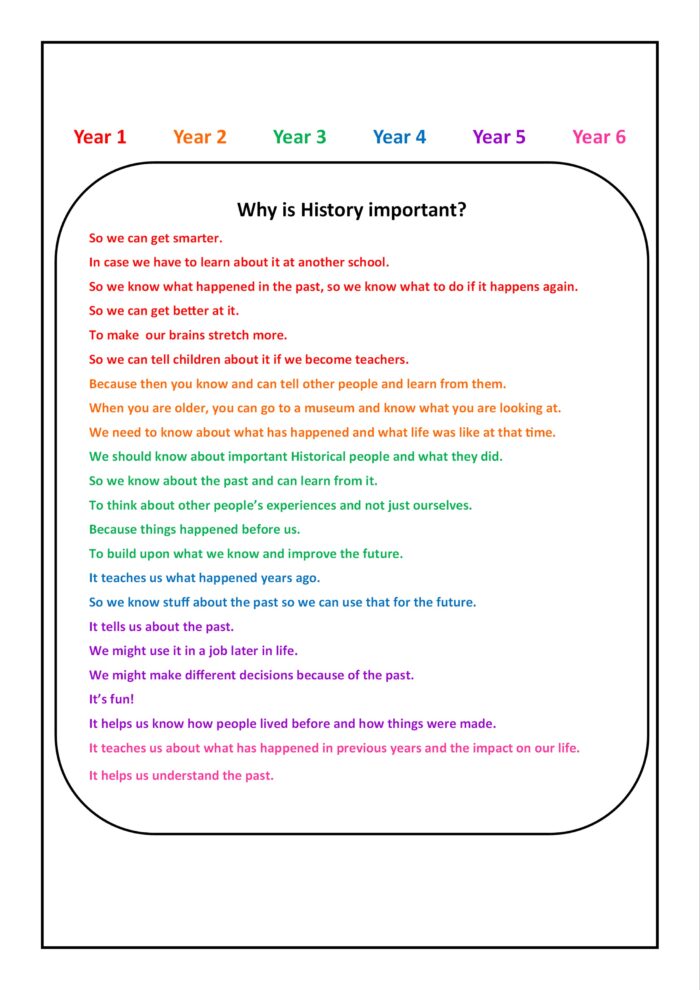
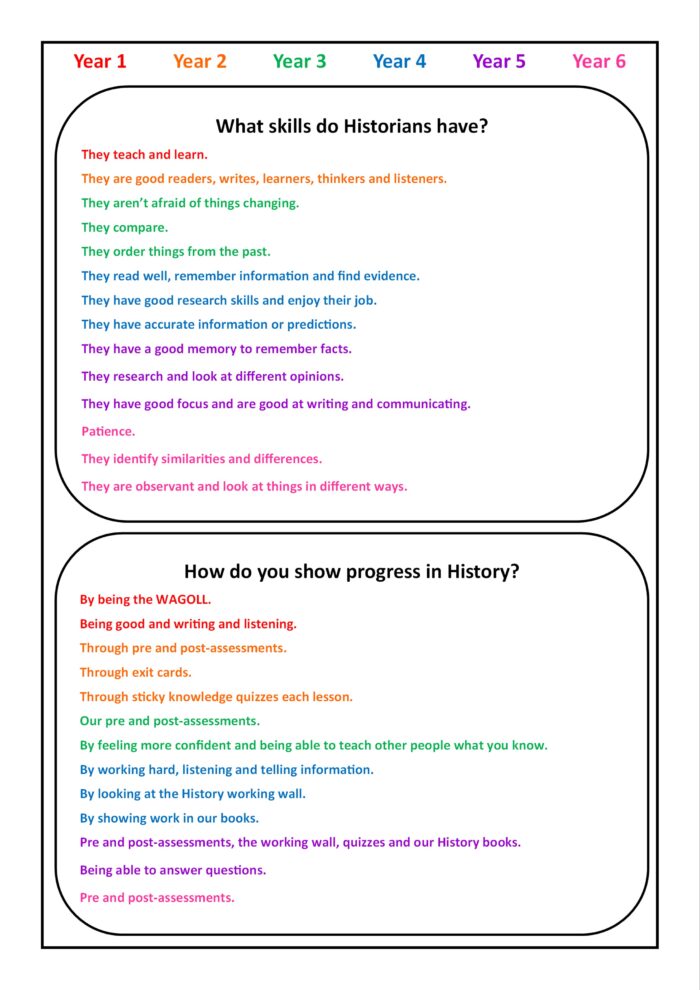
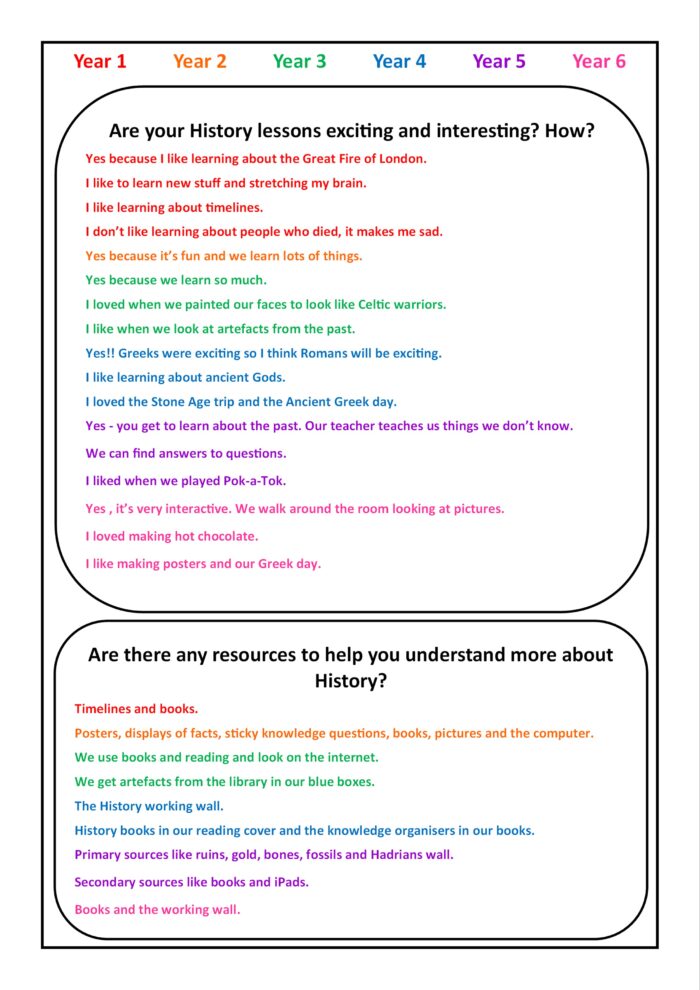
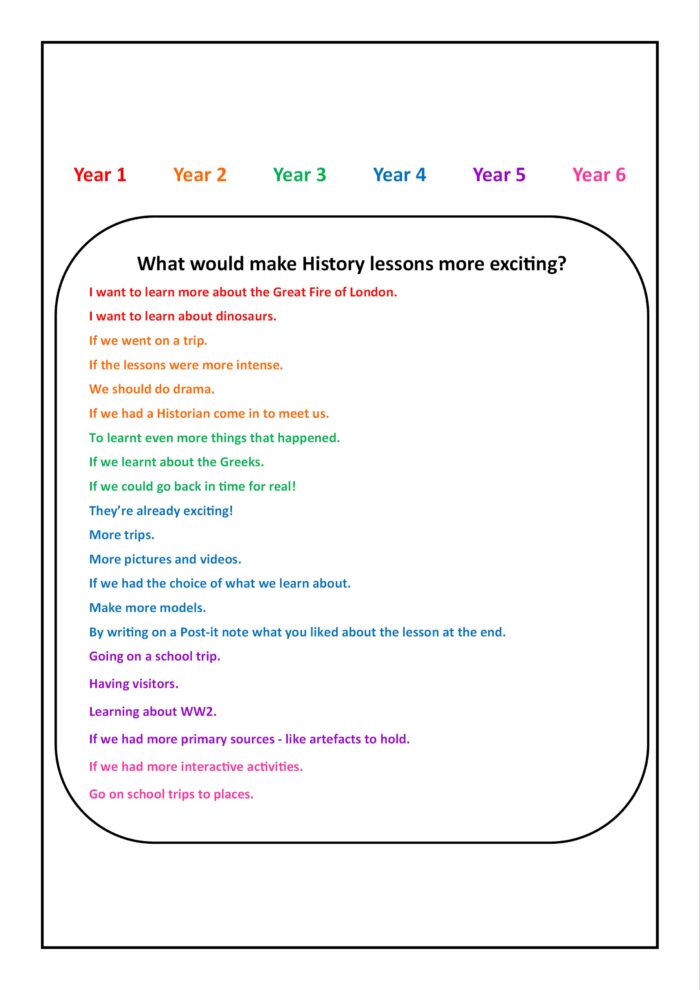
Please click here to read more about what or children say about History at Mobberley.
